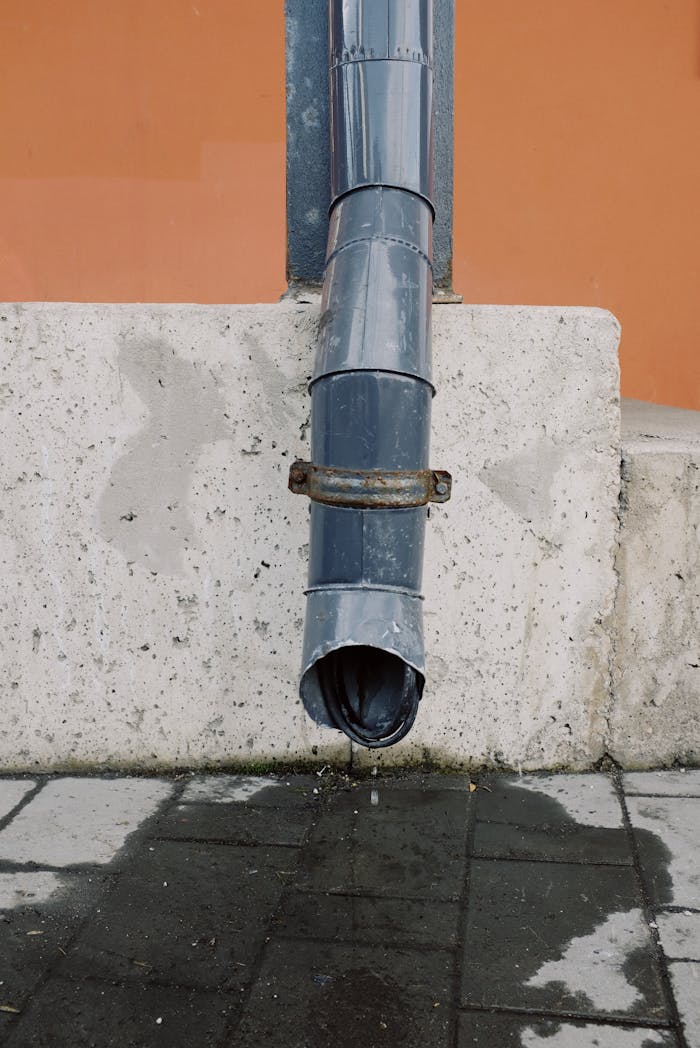
Enzyme-based drain cleaners are plumbing products that use natural, non-toxic enzymes and bacteria to remove obstructions and keep drains clean. Chemical drain cleaners use strong chemicals, such as sulfuric acid or lye, to dissolve clogs. On the other hand, enzyme-based drain cleaners use a natural enzymatic reaction to break down organic materials like food particles, hair, grease, and soap scum.
How Enzyme-based drain cleaners work:
Bacteria and Enzymes
These drain cleaners have bacteria and enzymes designed to break down organic waste. Enzymes break down waste into smaller pieces, which the bacteria then consume. Everything about this procedure is organic and safe for the environment.
Application
It is common practice to pour enzyme-based drain cleaners and let them sit for a while, often overnight. At this point, the bacteria and enzymes begin to work on the blockage.
Maintenance
To keep things running smoothly and avoid blockages in the future, many people use enzyme-based drain cleaners on a regular basis. You can help keep drains clear of buildup by utilizing them on a regular basis.
Benefits of Enzyme-Based Drain Cleaners
The advantages of enzyme-based drain cleaners are many, particularly when contrasted with the more conventional chemical alternatives. Here are a few major benefits of using enzyme-based drain cleaners:
- Long-Term Solution
- Rather than only treating the problem, you can use these drain cleaners on a daily basis to keep clogs at bay.
- Plumbing-Friendly
- Enzyme-based alternatives are excellent for homes with septic tanks or older plumbing systems. This is because they do not damage or corrode pipes like harsh chemical cleaners do.
- Without worrying about damaging the pipes, you can use them on septic systems, metal, and even PVC.
- Smell Control
- Enzyme-based drain cleaners help to naturally deodorize drains. This breaks down the organic waste that generates unpleasant smells, leaving them smelling fresh.
- Effective for Organic Clogs
- Common organic items that create clogs include soap scum, hair, grease, and food particles; enzymes work by destroying these substances.
- Regular use makes maintaining clear pipes easier because buildup is continuously broken down before it causes an obstruction.
- Safe for Indoor Air Quality
- Enzyme-based drain cleaners are safer to use indoors, especially in places with limited ventilation. This is because they do not emit toxic fumes or contain harsh chemicals.
- User-Friendly
- It’s usually as simple as pouring the solution down the drain, letting it soak for a while, and then flushing with water to use an enzyme-based drain cleaner.
- Eco-Friendly
- Cleaners formulated with enzymes are a safe alternative to conventional cleaning products since they decompose organic materials using naturally occurring bacteria and enzymes.
- Because they do not contribute to water pollution, these drain cleaners are better for the environment and all living things in it, especially fish and other aquatic creatures.
To keep drains clean and odor-free, it’s best to use enzyme-based drain cleaners. These are kinder, safer, and more environmentally friendly than other options.

Limitations:
- They may not be as effective against serious obstructions caused by non-organic materials (such as metal or plastic) as they are against biological matter.
- Enzyme-based drain cleaners aren’t as effective as chemical ones when it comes to removing clogs quickly because they require more time to function.
Usage Tips:
- Afterward, flush the drain with hot water to help remove any remaining treatment residue.
- The bacteria and enzymes in the cleanser will work their magic if you leave it to sit all night.
- Maintain clean drains and avoid buildup by routinely using drain cleaners that contain enzymes.
How to use salt for drain cleaning
Salt is an easy and all-natural way to clean drains, remove small obstructions, and buildup. Allow me to show you how:
Materials Needed:
- About ½ cup of table salt
- Vinegar (optional, about ½ cup)
- Boiling water (about four cups)
- Baking soda (optional)
Steps:
Pour salt down the drain
- First, pour approximately half a cup of salt into the drain. Because of its abrasiveness, salt is useful for cleaning the inside of pipes.
Add Baking Soda (optional)
- To make it even more effective, combine half a cup of baking soda with the salt before dumping it down the drain. Baking soda, a natural deodorizer, grime remover, and grease remover, also has other uses.
Then, add boiling water
- Using extreme caution, pour four cups of boiling water into the drain. Whatever soap scum or grease the salt might have loosened will be easier to dissolve in the hot water.
Optional: Add vinegar
- To make the cleaning procedure even more intense, add approximately half a cup of vinegar to the boiling water after adding the salt. A fizzy action, produced by the reaction of vinegar and baking soda (if employed), can be utilized to remove blockages.
Let It Sit
- If the blockage is particularly stubborn, you may need to let the mixture remain for up to an hour after adding it to the drain.
Flush with hot water
- To remove any leftover residue, flush the drain with hot water once the sitting period is over.
Tips:
- This technology is ideal for minor obstructions and maintenance. A drain snake, plunger, or plumber may be required for more serious clogs.
- To maintain clear drains and avoid recurring clogs, try using a solution of salt and hot water once a month.
When it comes to regular drain repair, this method is excellent because it is eco-friendly and doesn’t utilize harmful chemicals.
Eco-Friendly Drain Maintenance Tips
In addition to avoiding potentially dangerous chemicals, maintaining your drains in an environmentally conscious manner helps keep them clear. It also reduces the likelihood of plumbing problems and clogs. If you want to keep your drains clear and clean, follow these steps:
- Keep grease out of drains
- Keep grease and oil out of the drain at all times. Rather, put it in a container and then throw it away after it solidifies.
- Instead of disposing of food waste, compost it
- Keep grease, coffee grounds, and food scraps out of the drain. Composting organic waste is better for the environment and your plumbing.
- Use natural drain cleaners
- Pour ½ cup of baking soda and ½ cup of white vinegar down the drain. Wait 15–30 minutes for it to bubble, and then flush it with hot water.
- The juice of one lemon squeezed into a cup of baking soda will leave a pleasant aroma and provide additional cleaning power.
- Stay away from chemical drain cleaners
- Pipes and the environment aren’t always the best targets for chemical drain cleaners. When possible, unclog drains by hand using a drain snake or baking soda and vinegar.
- Use enzyme cleaners
- Think about cleaning your drains with an enzyme product. These decompose organic materials without using harmful chemicals, making them better for the environment.
- Regular cleanup
- On a regular basis, pour a solution of salt and boil water down your drains to keep them clean. By doing this, you can keep your pipes clean of grease.
- Perform regular leak checks
- Fix any plumbing leaks you find; otherwise, you may end up wasting water and dealing with more serious problems.
- Educate your household
- To keep your plumbing system clear and in excellent repair, it’s important that all members of your household know what should and should not be flushed down the drain.
- Preventative maintenance
- You can prevent hair, food particles, and other debris from going down the drain by using a drain strainer in your bathtub, shower, or sink.
- To help dissolve grease and other buildups, pour hot water down the drain once a week.
- Maintain your garbage disposal
- Grind some ice cubes and citrus peels in your garbage disposal to keep it clean and fresh. This will also eliminate any buildup that may have formed.
Follow these guidelines to minimize your environmental impact while keeping your drains clean and functional.
Conclusion
In general, people who are concerned about the environment and want to keep their plumbing systems clean without using harsh chemicals may consider enzyme-based drain cleaners.
